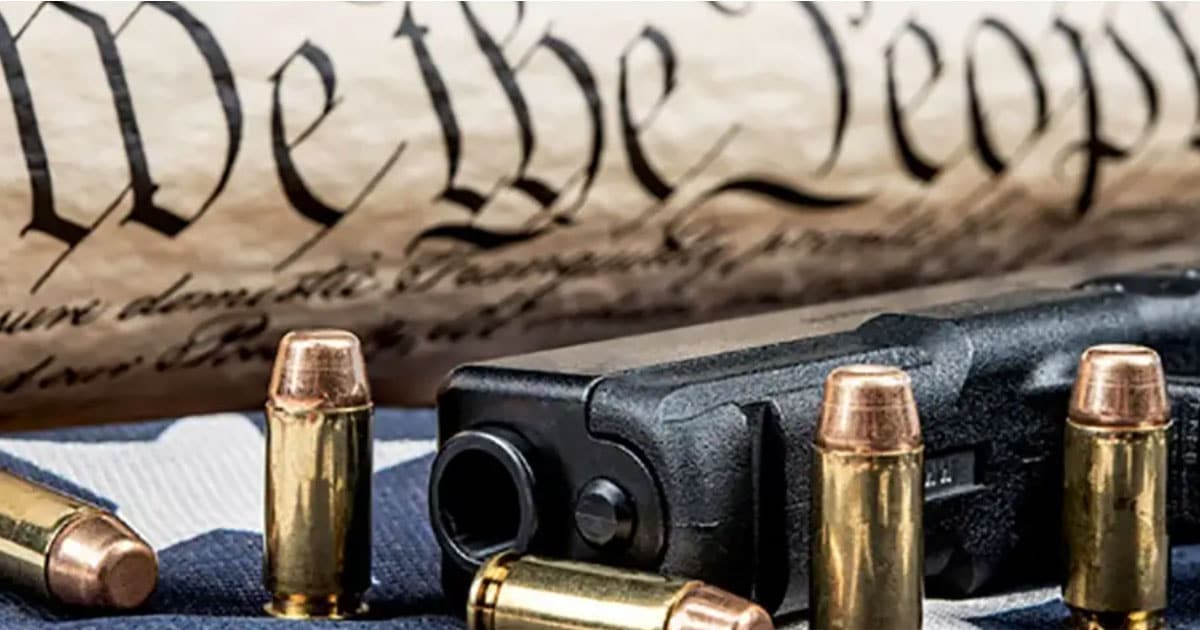
U.S. District Judge Kathleen Cardone dismissed the case against a defendant who faced a charge of possession of a weapon by an unlawful user of marijuana. The El Paso woman was also charged with transferring a firearm and ammunition to her husband, who was deemed a user of controlled substances.
No matter, as Judge Cardone ruled that federal restrictions applied for both charges do not align with “our Nation’s history of firearm regulation” and therefore are “unconstitutional.”
Her decision was soundly based on the Supreme Court’s verdict in New York State Rifle & Pistol Association v. Bruen. Last year’s 6-3 majority ruling affirmed that the Second Amendment clearly affords law-abiding individuals the freedom to keep and bear arms both at home and away from home.
In writing for the majority, Justice Clarence Thomas plainly established that self-defense is not a second-class right. Further, he established a high bar for restrictions on gun rights, noting that attempts to curtail these freedoms must follow the history of firearm regulation in the U.S.
Cardone ruled that federal laws that prohibit firearm possession just for misdemeanor marijuana possession fall outside of this definition.
“In short, the historical tradition of disarming ‘unlawful’ individuals appears to mainly involve disarming those convicted of serious crimes after they have been afforded criminal process,” she wrote in her opinion.
Meanwhile, the specific law applied in the case of the El Paso defendant “disarms those who engage in criminal conduct that would give rise to misdemeanor charges, without affording them the procedural protections enshrined in our criminal justice system.”
In other words, those charged with simple misdemeanors are stripped of their constitutional right to due process over minor infractions.
Cardone also explained that the federal law does not connect its restrictions on firearm usage to intoxication or public safety in the manner that U.S. laws have historically done.
This key decision is the second already this year to strike down Washington’s prohibition on marijuana users purchasing or possessing weapons. In February, U.S. District Judge Patrick Wyrick of Oklahoma City dismissed the indictment of a man charged with violating the ban.
Wyrick acknowledged that the government may protect citizens from dangerous people having firearms but said federal prosecutors overstepped their legal bounds in the case of Jared Harrison.
He noted that the defendant’s “mere status as a marijuana user” should not disqualify him from his Second Amendment right to have a weapon. He further said that simply using marijuana was “not in and of itself a violent, forceful, or threatening act.”
Oklahoma is one of several states where the drug, which is still prohibited by federal law, may be legally acquired for medicinal purposes.
Wyrick confirmed that “the mere use of marijuana carries none of the characteristics that the Nation’s history and tradition of firearms regulation supports.”
The framework established in Bruen was clearly applied in both cases, affirming that there is no legal basis for denying Second Amendment freedoms for minor legal offenses.
No one is advocating the combination of drug use and weapons. That is as egregious as a drunk person firing a weapon and continues to be prohibited by law. But the mere possession and use of marijuana not in conjunction with firing a weapon should not be grounds for pulling away basic constitutional rights.
In these cases, the courts are moving in the right direction.
